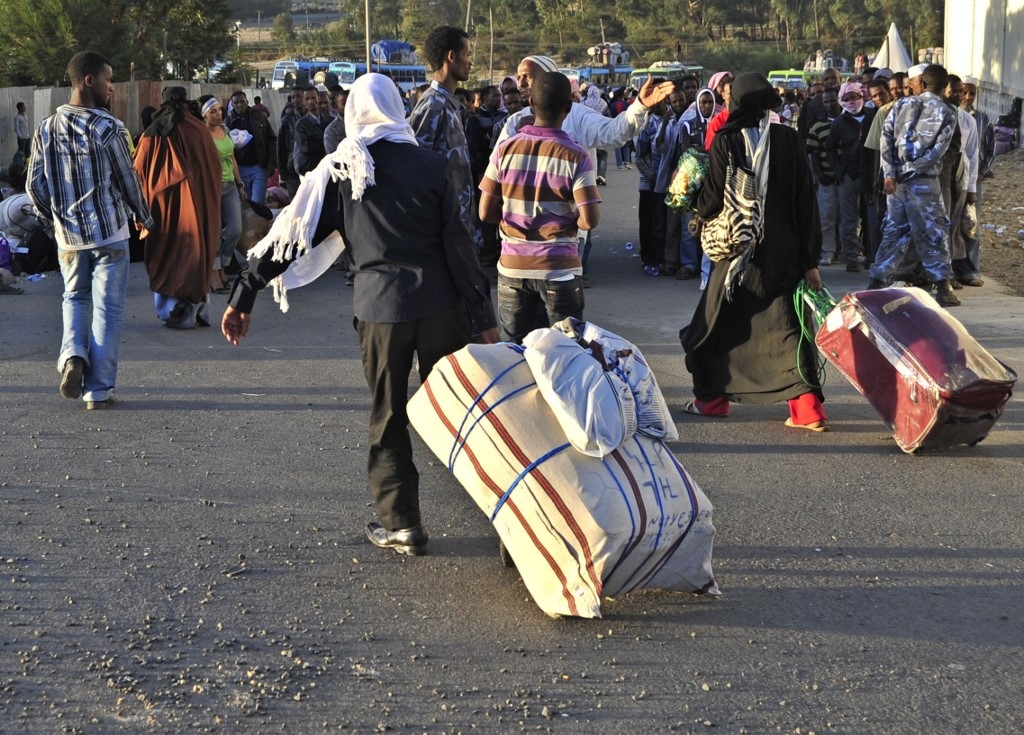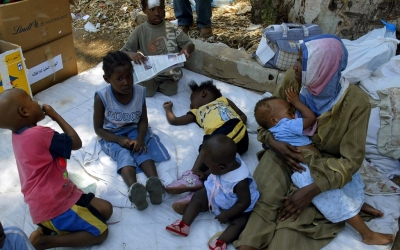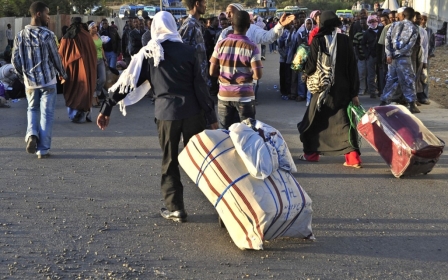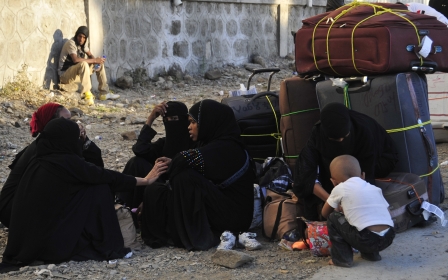Pregnant Ethiopians languish in 'hellish' Saudi detention centres: Amnesty International

Ethiopian migrants imprisoned in Saudi detention centres have been forced to live in crowded cells and use their cell floors as toilets, a rights group reported this week.
Testimony given to Amnesty International exposed "dire" conditions in the al-Dayer centre and Jizan central prison, where the Ethiopians and nationals from other countries have been detained.
The detained Ethiopians who spoke to Amnesty said that at least three migrants had died in detention, as some were held in cells with at least 350 people.
When they complained about their poor conditions, migrants said guards tortured them with "electronic devices" and beat them.
Among the detained were children, pregnant women and babies, who have all been held in appalling conditions.
Amnesty International gained the information after interviewing 12 detained Ethiopian migrants via a messaging app between 24 June and 31 July.
Their allegations were corroborated by videos, photos and satellite imagery analysed by the organisation's crisis evidence lab.
The detainees had been working in northern Yemen, but were expelled by Houthi rebels and sent to Saudi Arabia following the outbreak of the coronavirus pandemic.
The UN's International Organisation for Migration said that 2,000 Ethiopians remain stranded on the Yemeni side of the border, without food, water or healthcare.
Cell used as 'toilet space'
Zenebe, a 26-year-old Ethiopian migrant stranded in the al-Dayer detention centre, said there were no toilets, leaving detainees being forced to use a corner of the cell as a toilet space.
"It's hell, I've never seen something like this in my life," Zenebe, who like other witnesses was given a pseudonym in the report, told Amnesty.
"We urinate on the ground, not far from where we sleep. Sometimes we had to walk on it."
Two detainees who spoke to Amnesty said they had seen three dead bodies - an Ethiopian man, a Yemeni man nd a Somali man - in al-Dayer.
'It's hell … we urinate on the ground, not far from where we sleep. Sometimes we had to walk on it'
- Zenebe, Ethiopian migrant
Detainees also voiced concern over the "significant number" of pregnant women in detention. None of the pregnant women who spoke to Amnesty said they had received adequate healthcare during their detention.
Roza, a 20-year-old Ethiopian detainee, was six months pregnant when she spoke to Amnesty. She said she saw many pregnant women while she was detained.
She said that pregnant women were eventually allowed to see a doctor, but were put in metal chains and tied in pairs. The pregnant women were taken to an examination room but not all were given adequate care. Roza said she was denied an ultrasound and that all the women were given the same pills.
Some of the children who were detained in al-Dayer had reportedly become sick because they were "sleeping in a dirty place".
Saudi Arabia has long staged a crackdown on undocumented migrants inside the kingdom. At least 10,000 Ethiopians on average were being deported each month.
Ethiopian officials called on the Saudi government to halt deportations because of Covid-19.
Despite travel restrictions, at least 34,000 people returned to Ethiopia from other countries between April and September this year, including 3,998 from Saudi Arabia.
Middle East Eye delivers independent and unrivalled coverage and analysis of the Middle East, North Africa and beyond. To learn more about republishing this content and the associated fees, please fill out this form. More about MEE can be found here.





